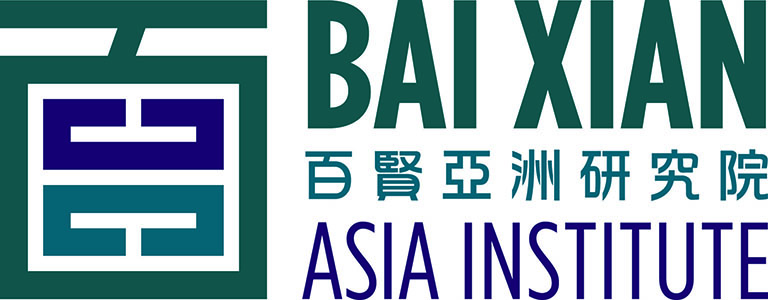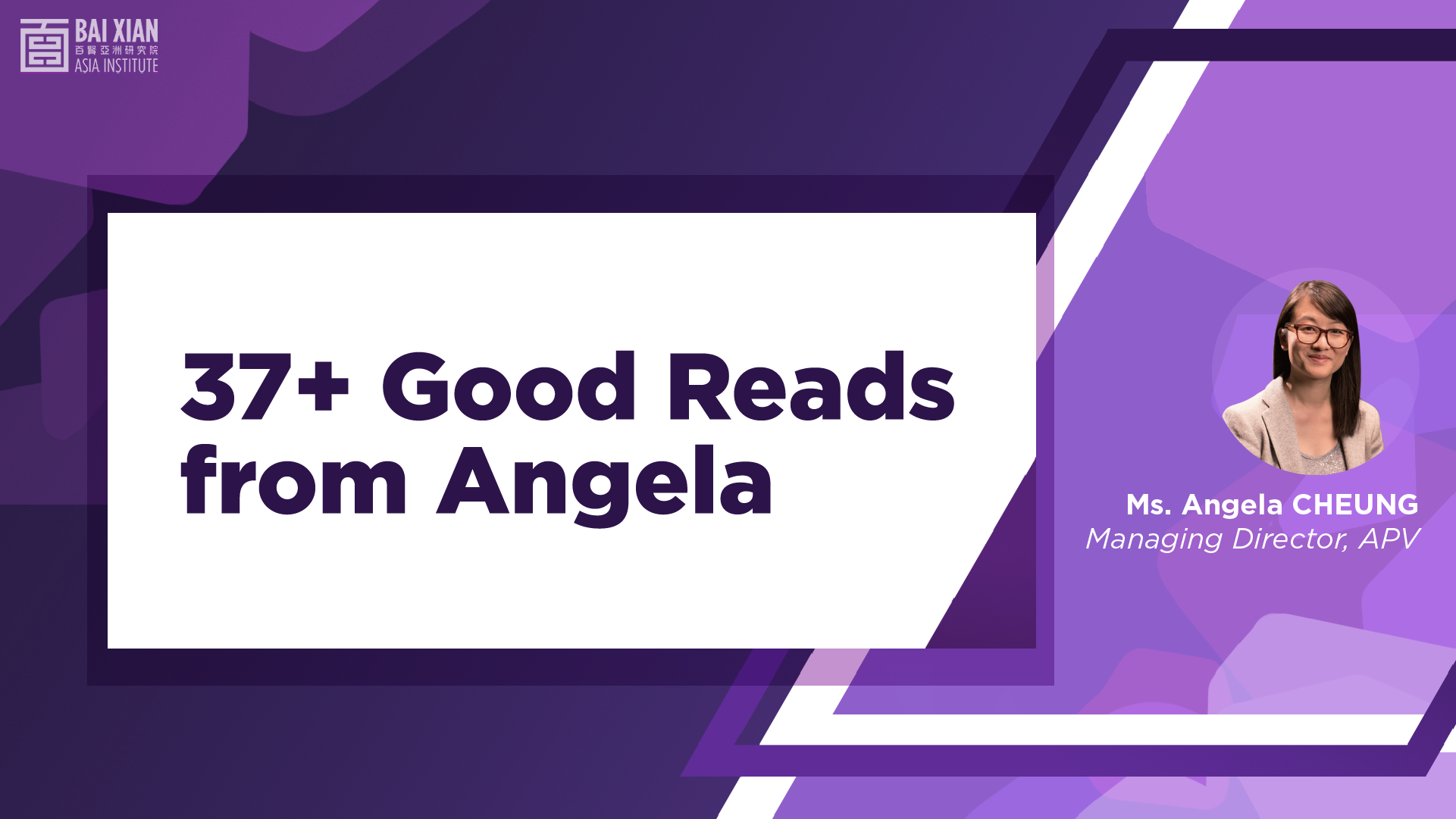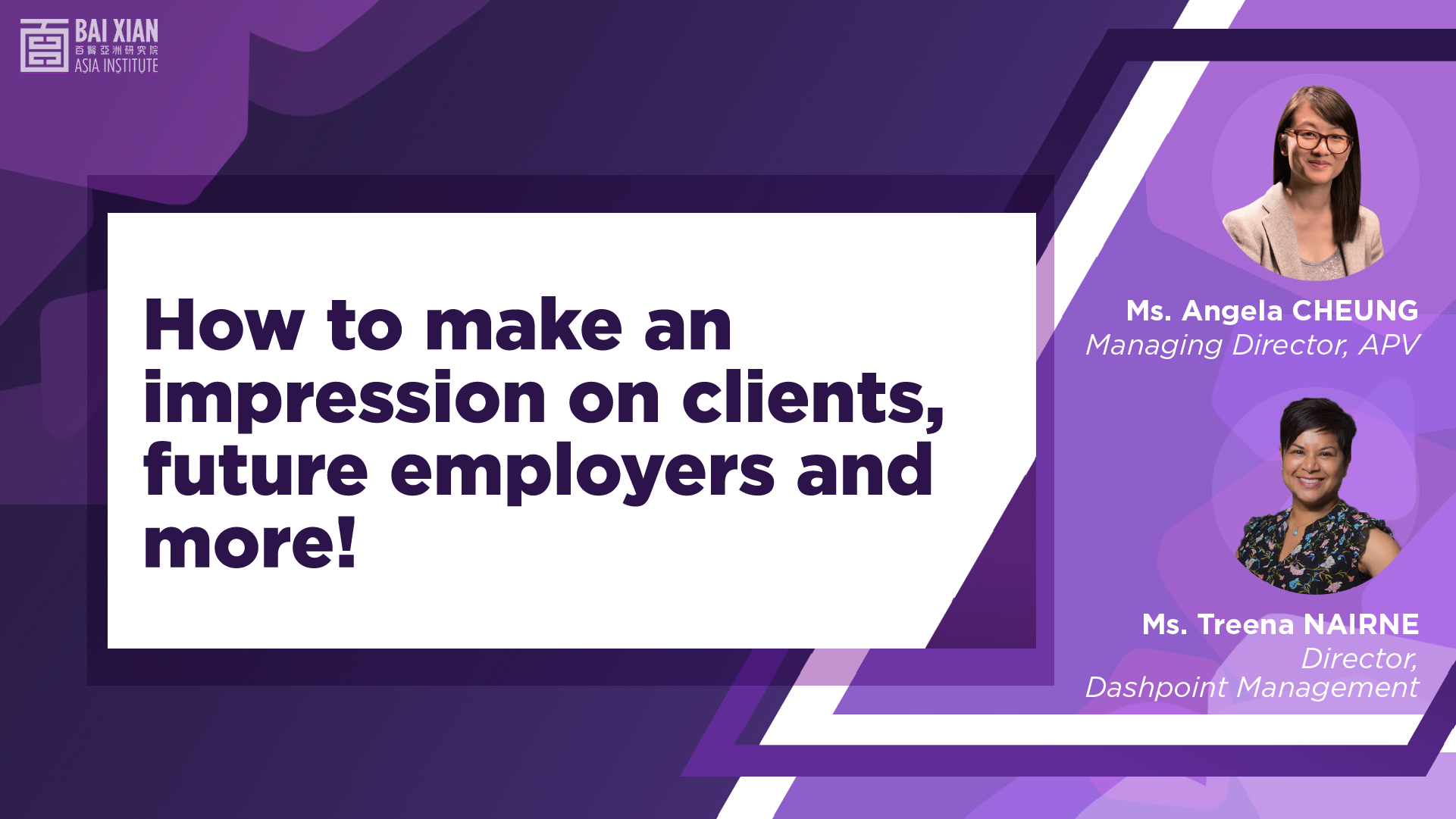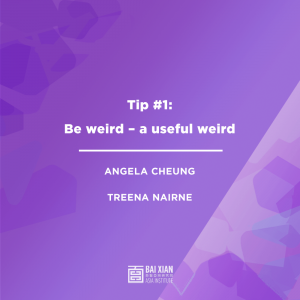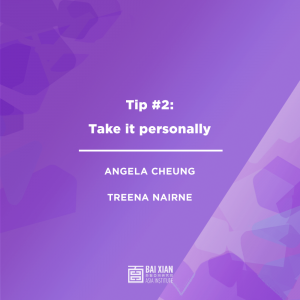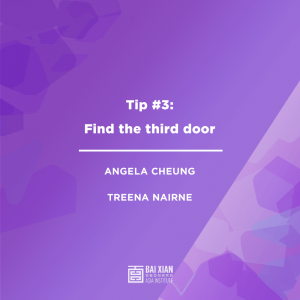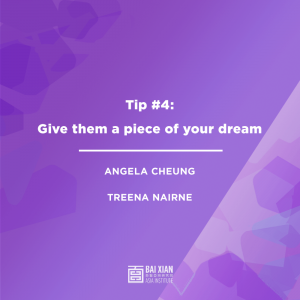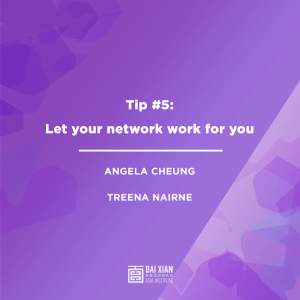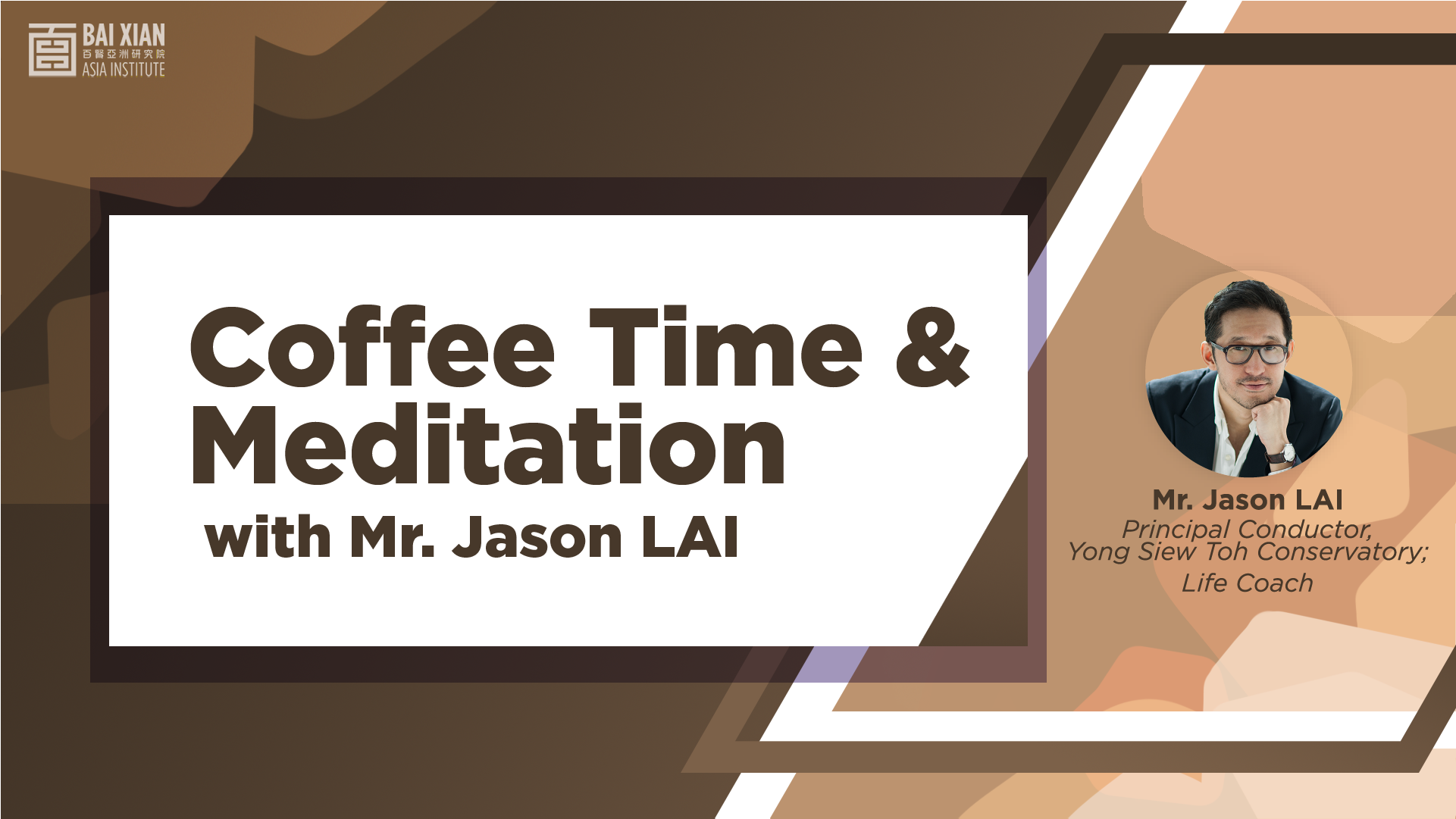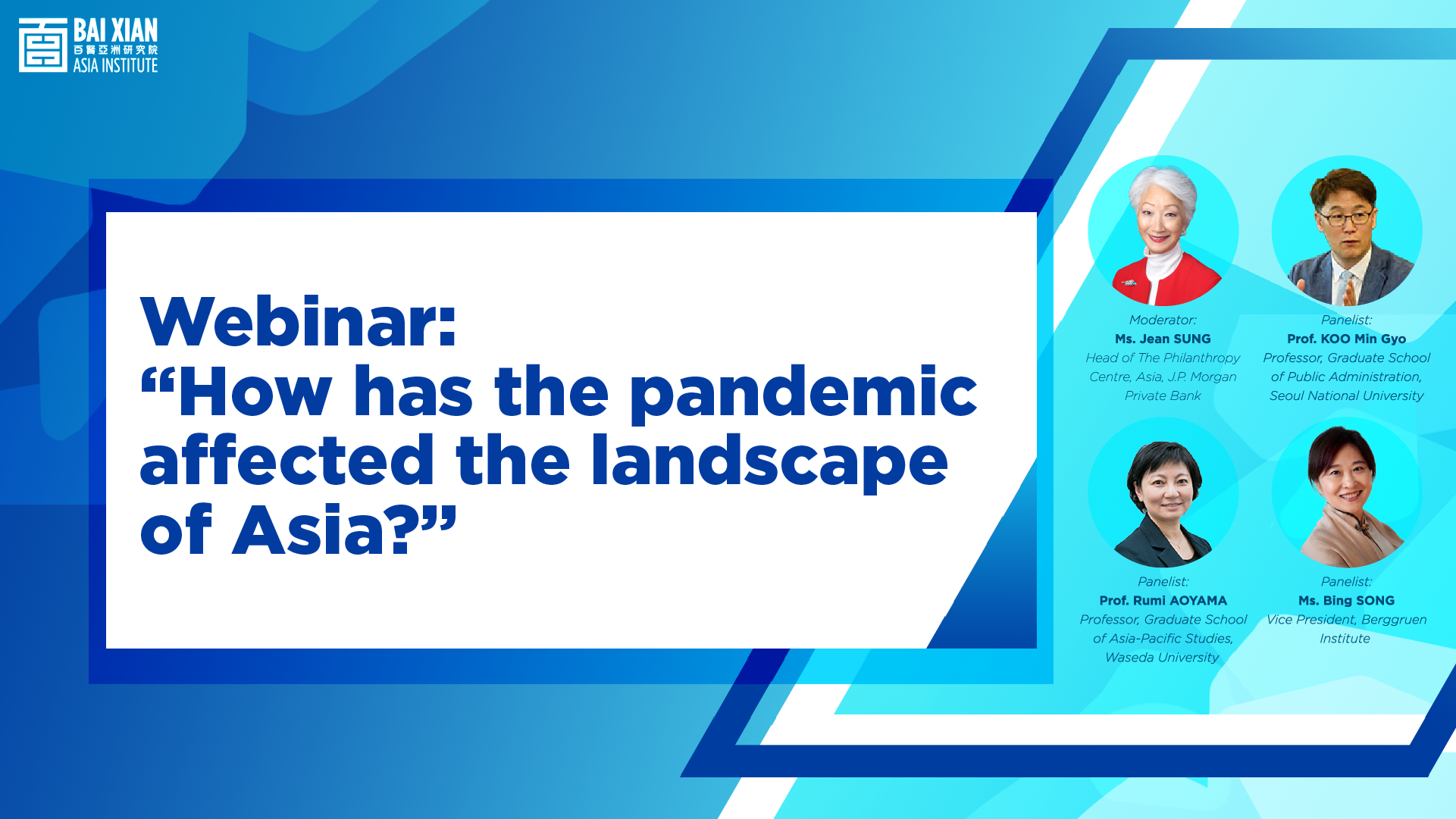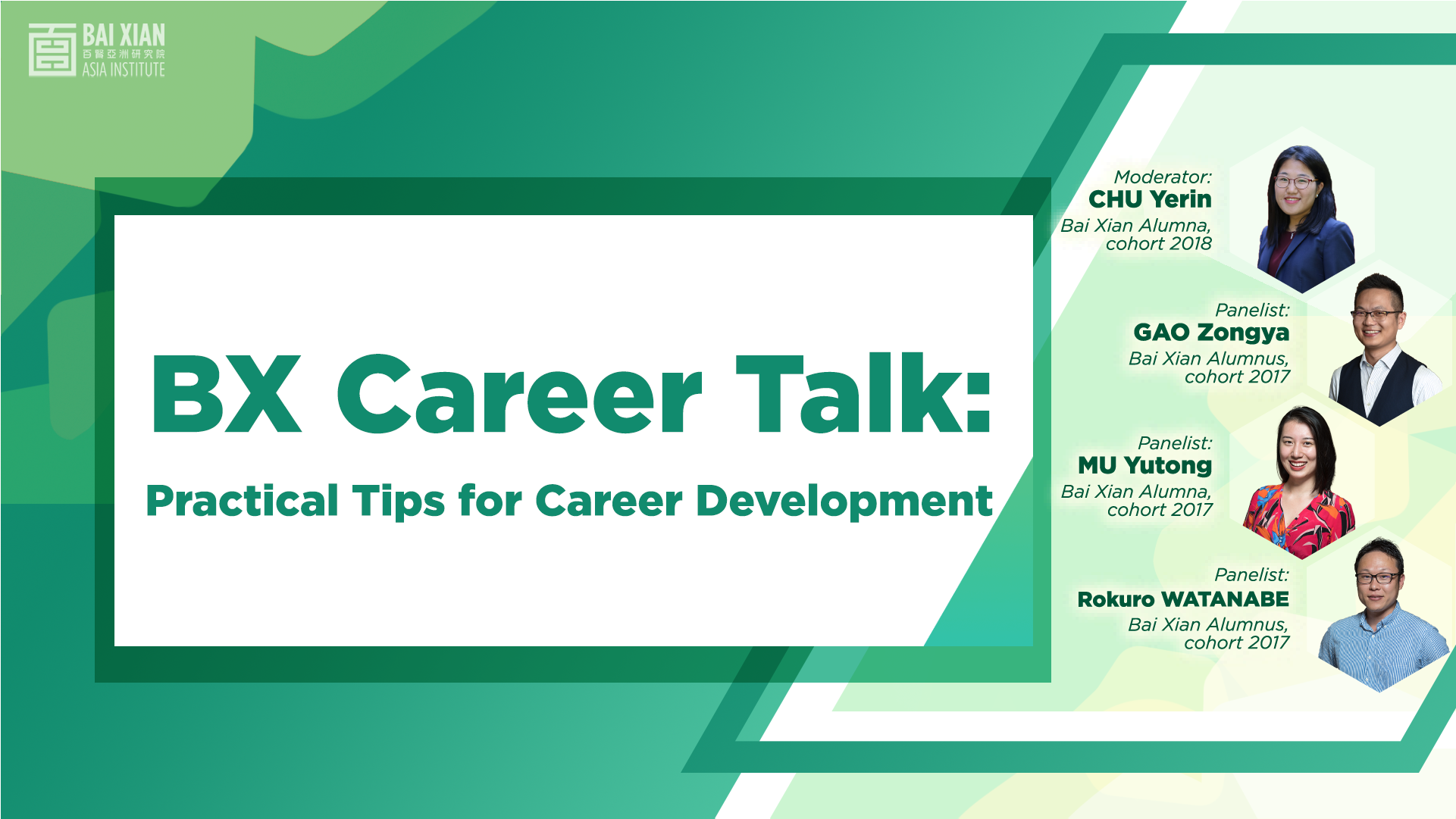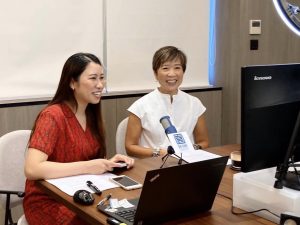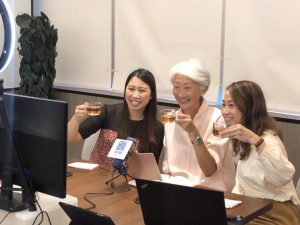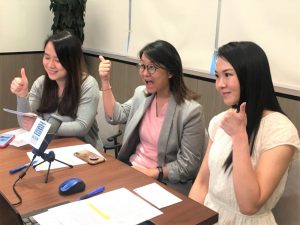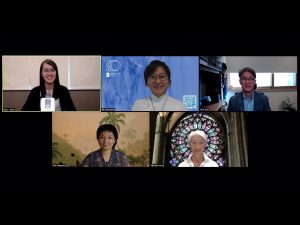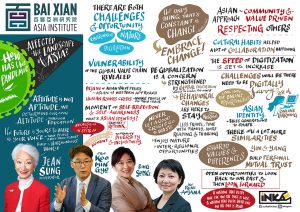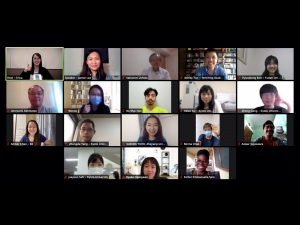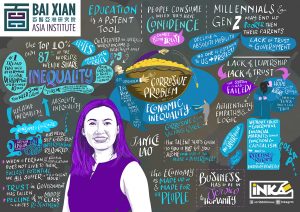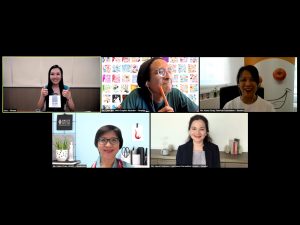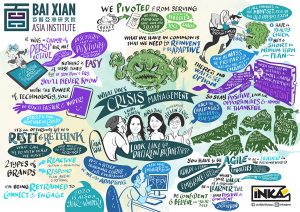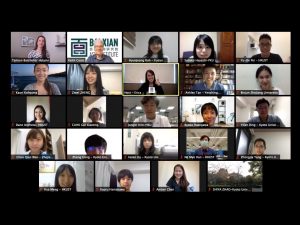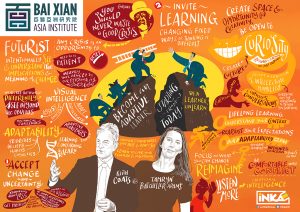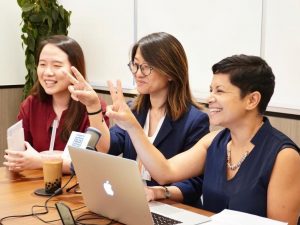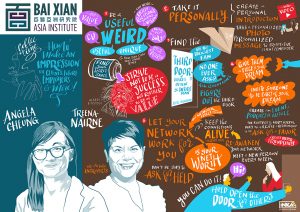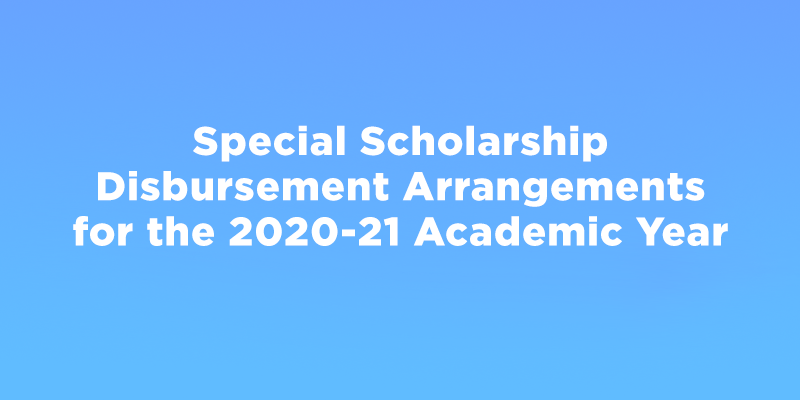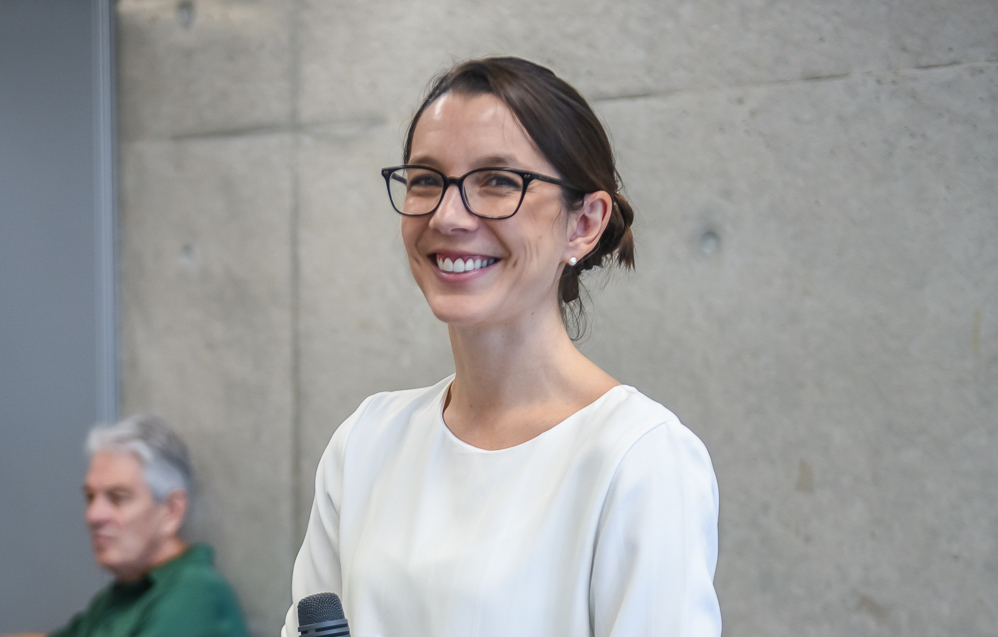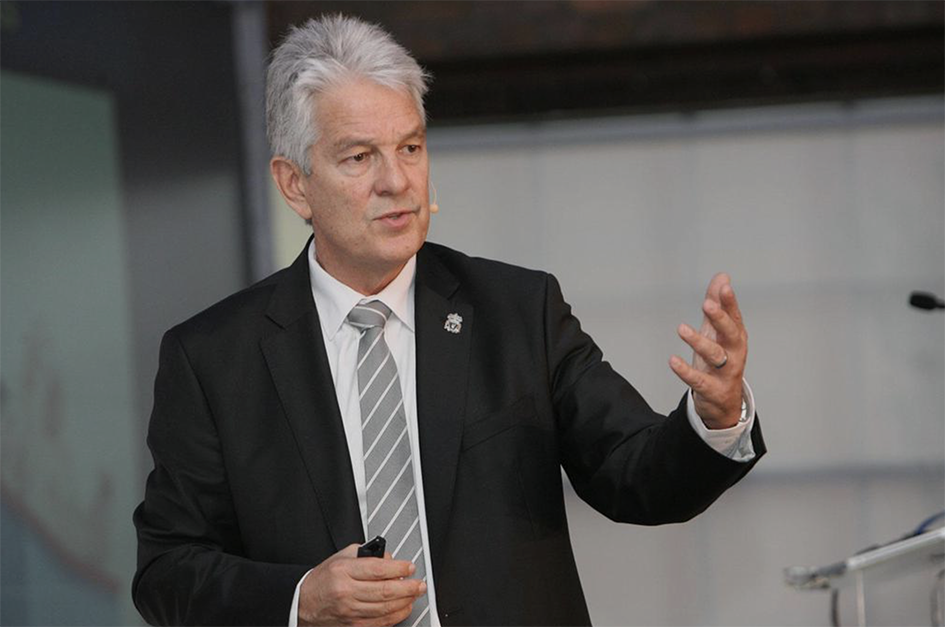[Blog] 37+ Good Reads From Angela
37+ Good Reads From Angela

At a few of our recent virtual events, our popular speaker, Angela Cheung (Managing Director of APV and Communication and Development Committee Member of BXAI), shared with us a wealth of wisdom and advice on career strategies and presentation skills. If you are curious about what inspires her, here are more than 37 good reads from Angela that you can’t miss! Encompassing poignant life stories and self-help books on business, career, life, and more, this book list also comes with Angela’s insightful comments on each book. Which titles strike your fancy?
- The Books I Gift and Recommend the Most
- Books I’m Currently Reading and Recommend to People
- Books Based on True Stories that Make Me Cry and Uplift My Soul at the Same Time
- Books About the Creative Struggle and Doing the Work
- Books about Habits and Productivity
- Books about Business
- Books about Career and Life
THE BOOKS I GIFT AND RECOMMEND THE MOST
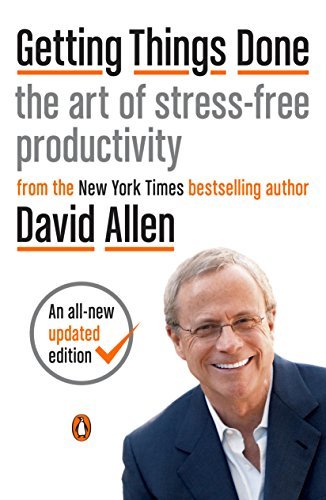
1) Getting Things Done: The Art Of Stress-Free Productivity by David Allen
This book completely changed the way I worked and increased my output while reducing my stress considerably. To this day, I apply so many of the author’s systems (but not all of them). I would say this book is great for its recommended systems for getting things done and less strong on areas such as the mindsets behind motivation and procrastination (see later book recommendations for that), though the author would disagree with me!
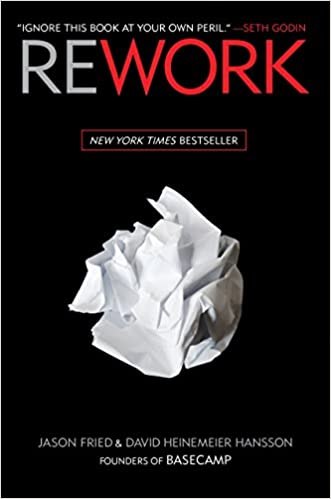
2) Rework by Jason Fried and David Heinemeier Hansson
I used to gift a copy of this book to every new employee because the unconventional business thinking and values are very similar to those of my boss.

3) Rebel without a Crew: Or How a 23-Year-Old Filmmaker With $7,000 Became a Hollywood Player by Robert Rodriguez
I liked giving this book to my junior creatives as gifts. It’s a wildly entertaining tale from the maverick writer/director Robert Rodriguez on how he made his first feature film for $7,000.
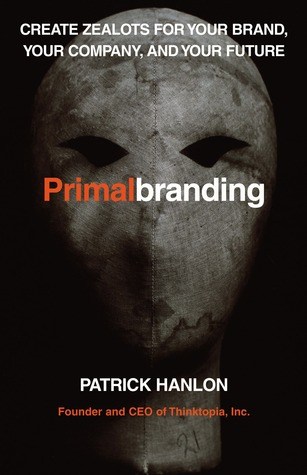
4) Primal branding: Create Belief Systems that Attract Communities by Patrick Hanlon
This is the book I’ve been telling all my clients to read since I picked it up a year ago. They never do, so I find myself summarizing this book all the time! It explains how you go from selling a product that people simply buy to building a brand and community that people will love, connect with, and talk about.
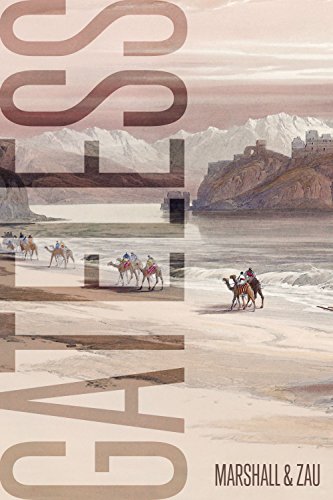
5) Gateless by Sebastian Marshall and Kai Zau
Attendees of the BXAI Summer Program in Beijing might remember Sebastian Marshall, my co-trainer for the presentation skills workshop. I recommend this book to people who are asking themselves, “What shall I do with my life?” While it doesn’t give you the miracle answer to this question, Gateless does offer strategies and actions for how to serve the “future you” and how to spend your time wisely to help figure out what you want to do. I always find it difficult to summarize Sebastian and Kai’s philosophy and frameworks for life so I simply tell people to check it out for themselves. Both authors have proved to be wonderful “frentors”.
BOOKS I’M CURRENTLY READING AND RECOMMEND TO PEOPLE
I haven’t even finished reading these books yet and I’m already recommending them! I hope someone from BXAI can finish these books and send me their notes so I don’t have to!
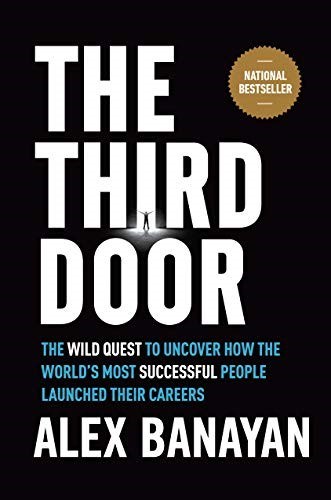
6) The Third Door: The Wild Quest to Uncover How the World's Most Successful People Launched by Alex Banayan
The author doesn’t give up until he’s met and interviewed successful people such as Lady Gaga, Steven Spielberg, and Bill Gates, and that’s when he realizes that they all have one thing in common – they didn’t follow a traditional path to their career, but found ‘the third door’. The writing slightly irritates me, which is why I can’t seem to finish it, but the key lesson – to look for the ‘third door’ – is a valuable one and the book focuses on how to go about doing that.
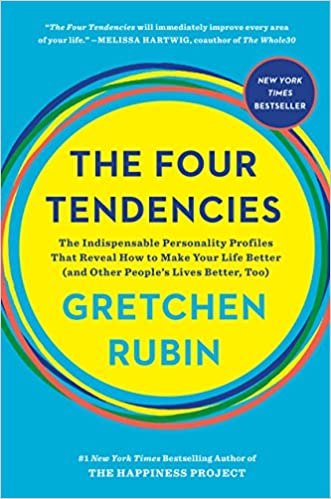
7) The Four Tendencies by Gretchen Rubin
I heard Gretchen Rubin explain the four tendencies, which include Upholder, Obliger, Rebel, and Questioner, in a podcast and it was such a huge revelation.
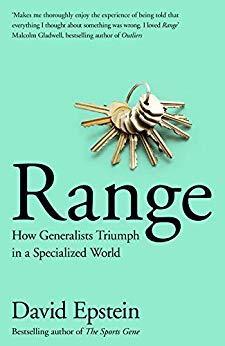
8) Range: Why Generalists Triumph in a Specialized World by David Epstein
I read the first chapter and for some reason I believe it tells me all I need to know and thus I don’t need to read the rest! Range makes the case that in a world in which everyone is telling you to specialize (e.g. spend 10,000 hours honing your one amazing skill), the fact of the matter is that generalists do better in this modern complex world. Sometimes you like a book because it tells you what you want to hear, so perhaps I enjoyed this one because it validates my career choices and multiple interests!
BOOKS BASED ON TRUE STORIES THAT MAKE ME CRY AND UPLIFT MY SOUL AT THE SAME TIME
9) Any book about Benjamin Franklin and Ernest Shackleton
I’m drawn to pretty much any book about Benjamin Franklin and Ernest Shackleton. They achieved so much against the odds that it’s hard for me to write any kind of summary to do their lives justice. Just google them!
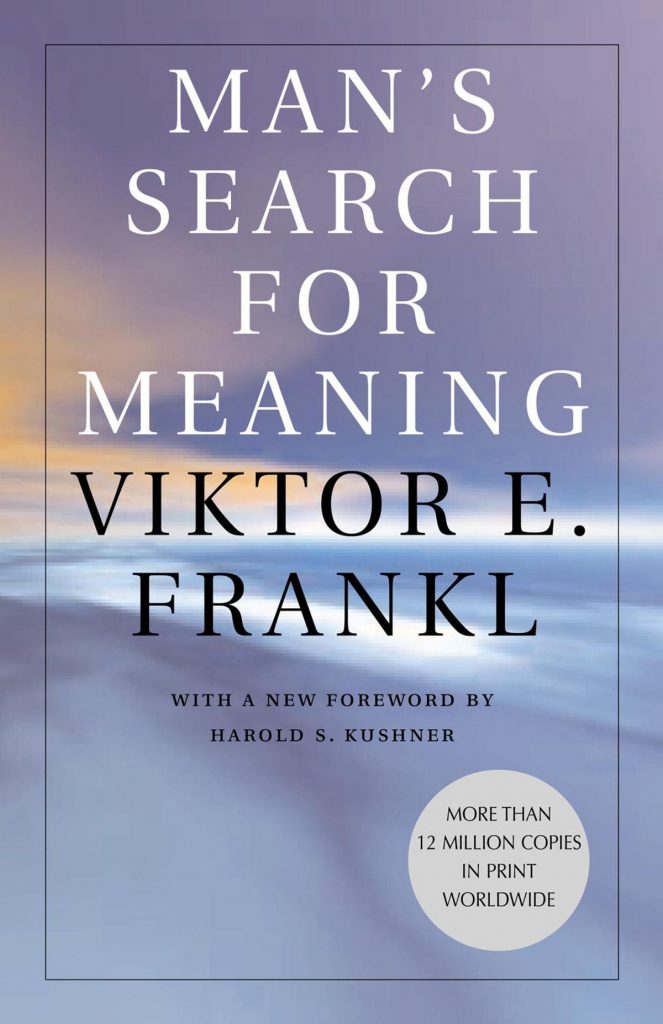
10) Man's Search for Meaning by Viktor E. Frankl
I want all my friends to read this book and yet at the same time, I can’t bear to gift it because the first section in which Frankl describes his experience of death, suffering, cruelty, and survival in Nazi concentration camps is so harrowing it’s close to unbearable at times. If I ever feel like complaining about #firstworldproblems – this is the book I think about.
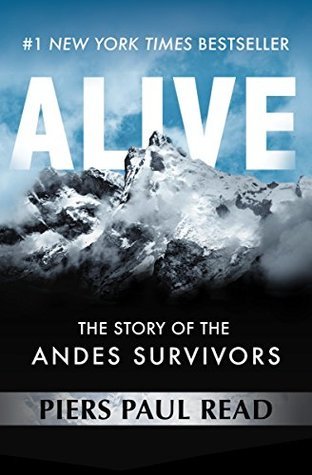
11) Alive: The Story of the Andes Survivors by Piers Paul Read
Like books about Benjamin Franklin and Ernest Shackleton, whenever I see a book about the 1972 Andes plane crash survivors, I’ll pick it up and flip through it. An incredible TRUE story about friendship and the will to survive.
BOOKS ABOUT THE CREATIVE STRUGGLE AND DOING THE WORK
This is a long list. There’s nothing quite like procrastinating by reading books about procrastination! I would rather you don’t read these books at all and just get on with creating stuff. I wish I could pull out one of these books as THE definitive guide to getting your creative work done but I can’t pick – I’ve learnt a little from each of them. My overall learning is that motivation is complex – so for me, I try to set up systems, accountability, habits, rewards, and ‘punishments’ for myself, anything to avoid having to rely on motivation alone.
12) Several non-fiction books by Steven Pressfield and Julia Cameron
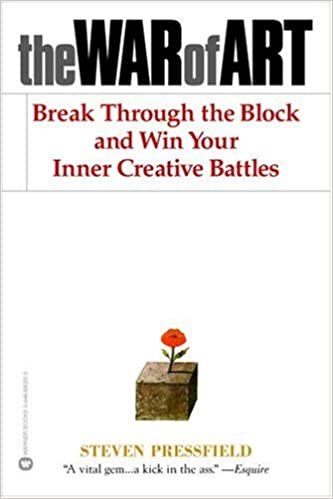
Steven Pressfield’s books (in order of recommendation): The War of Art, The Artist’s Journey, Turning Pro
Steven Pressfield writes about breaking through your mental blocks (he calls it “The Resistance”) to create your work.
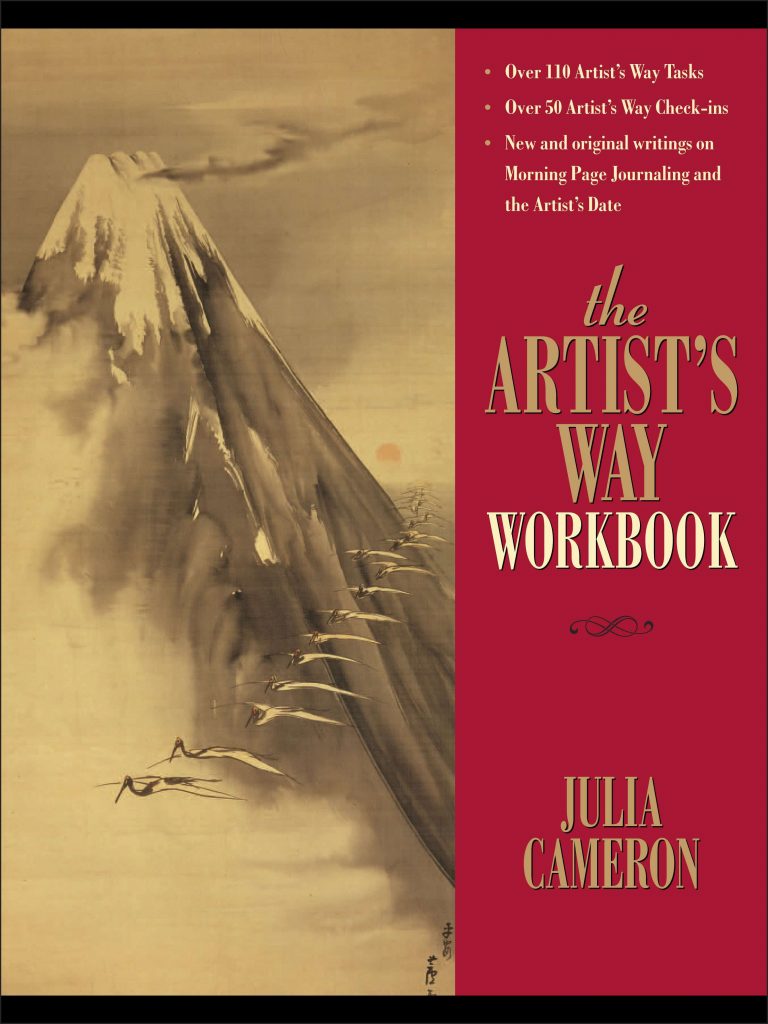
Julia Cameron’s books (in order of recommendation): The Artist’s Way, Finding Water, The Artist’s Way Workbook
If Steven Pressfield is a kick up the butt, Julia Cameron is the warm arm around your shoulder. I just re-read The Artist’s Way this year when I needed to get back into a difficult creative endeavor. (Or was it when I needed to procrastinate about getting back into a difficult creative endeavor? Umm…)
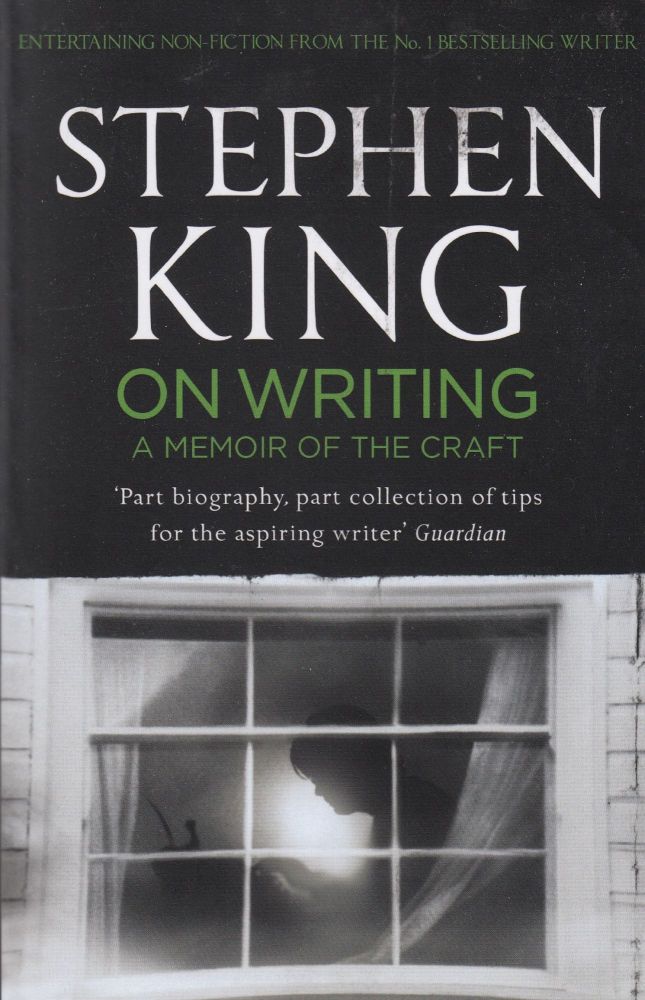
13) On Writing: A Memoir Of The Craft by Stephen King
Writing advice from a great writer.
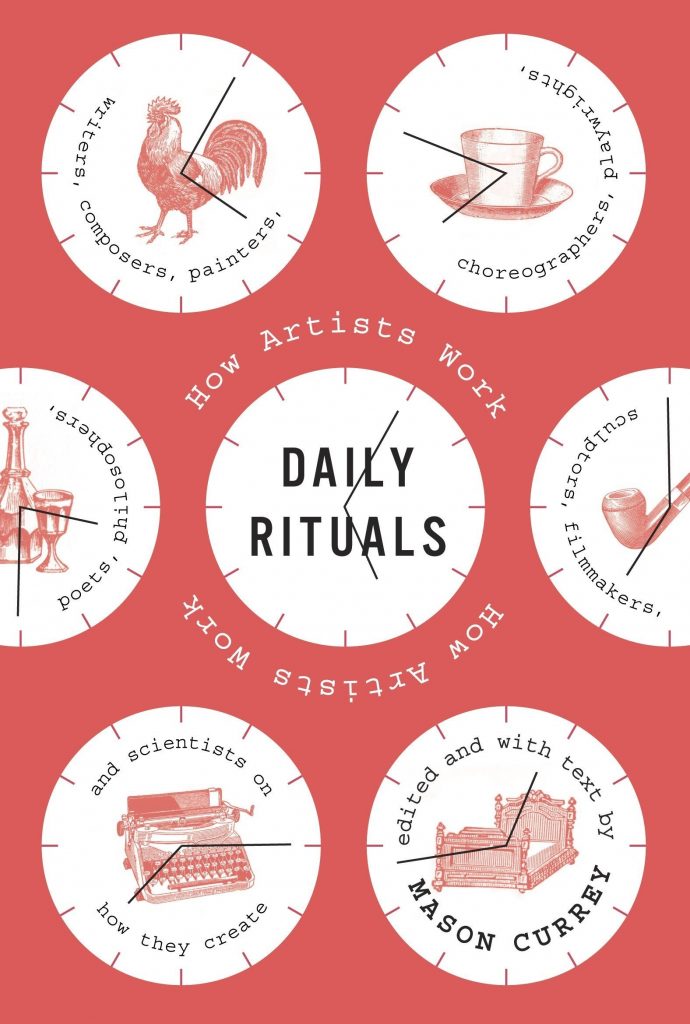
14) Daily Rituals: How Artists Work by Mason Currey
This is one of those books that you can pick up and flick to any page for some quick inspiration. Mason Currey describes the daily rituals of master thinkers and creators including Andy Warhol, Jane Austen, and Benjamin Franklin (yes, him again) in the kind of nerdy detail that I love and secretly hope that if I copied Beethoven’s ritual of counting out exactly 60 coffee beans every morning, I too could write a sublime symphony. The routines that stuck in my mind were those of Anthony Trollope (he had a regular full-time job at the post office), Ernest Hemingway (I thought he sat around drinking mojitos all day long but he used to get up very early to write), and Gertrude Stein, who only wrote for about 30 minutes a day and would have friends around almost every evening for raucous parties and conversations.
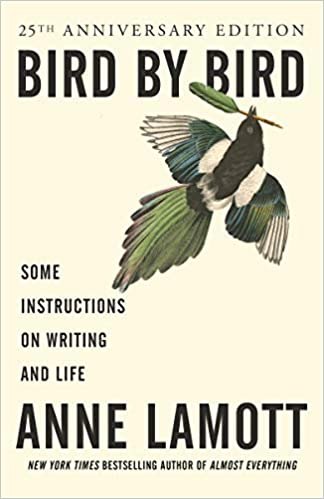
15) Bird By Bird by Anne Lamott
The author’s brother was struggling to write a report about birds and their father turned to him and said, “Just take it bird by bird.” I write the words “bird by bird” in big bold caps on the front page of most of my notebooks and say it to myself if I’m feeling overwhelmed.
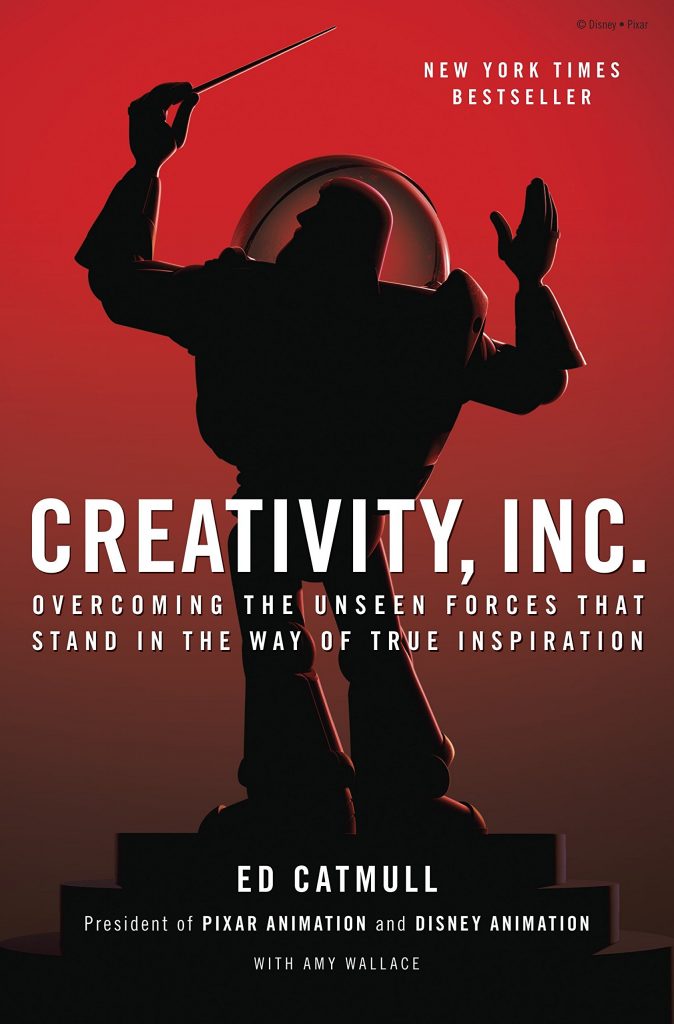
16) Creativity, Inc by Ed Catmull
A book about how to nourish a creative team for sustained success by the co-founder of Pixar.
BOOKS ABOUT HABITS AND PRODUCTIVITY
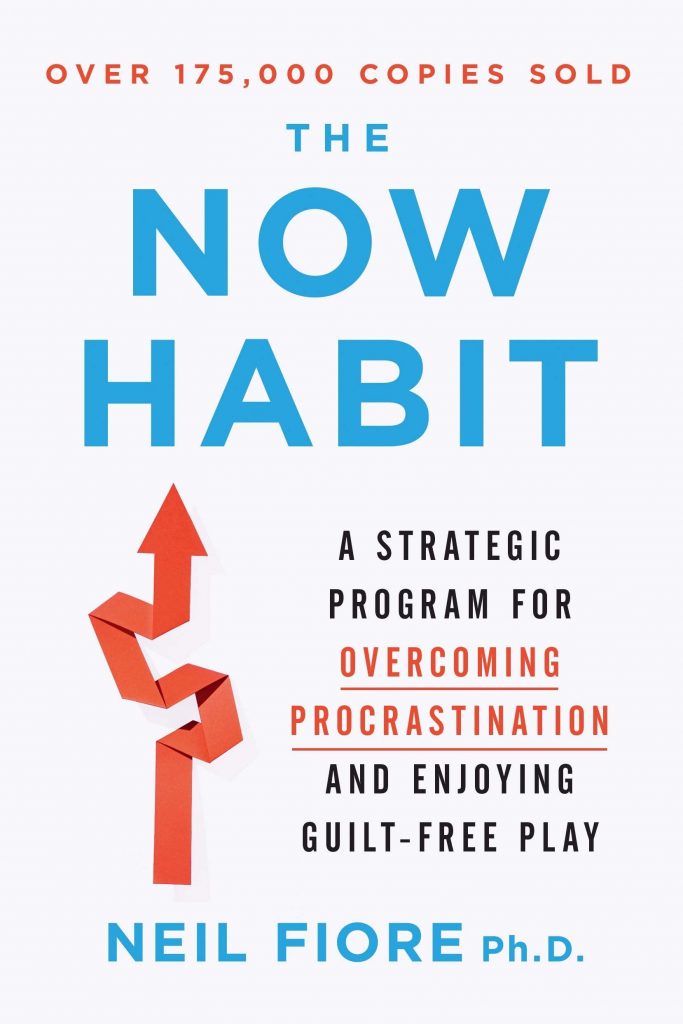
17) The Now Habit: A Strategic Program For Overcoming Procrastination and Enjoying Guilt-Free Play by Neil A. Fiore
If you forced me to pick one out of all the books I’ve read on procrastination, it would probably be The Now Habit. I love the way the author makes you schedule play the same way you schedule your work, and I recall a sentence that says something like “Ultimately, nothing helps banish the bad feeling of procrastination more than getting the work done.” I know that sounds obvious but that one sentence did so much for me!
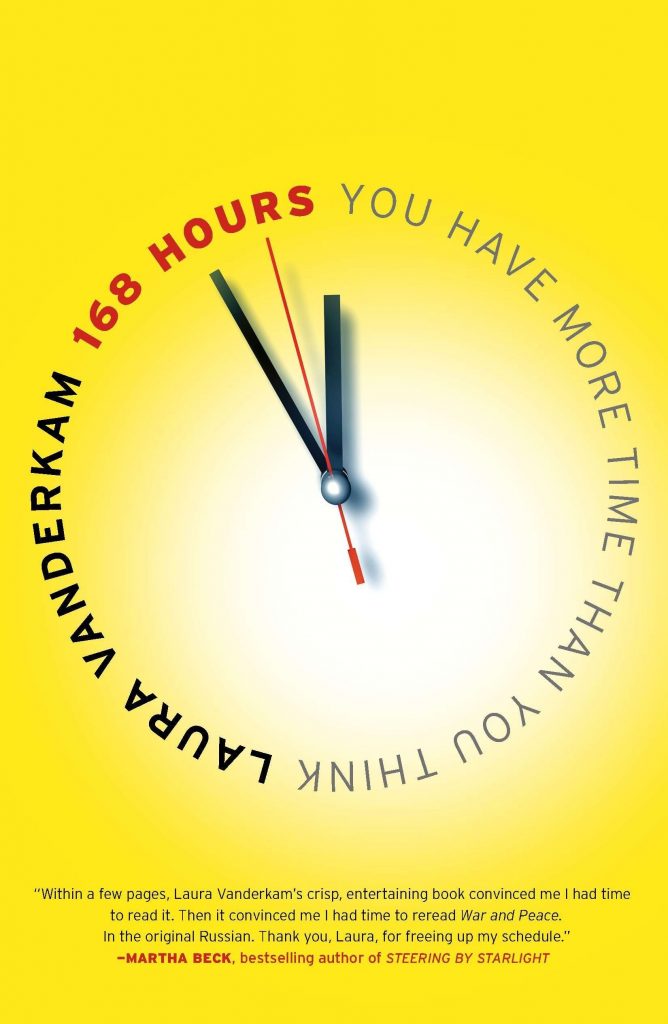
18) 168 Hours: You Have More Time Than You Think by Laura Vanderkam
You have the same hours a week as Barack Obama, a single working mother of six, and the world’s most prolific minds. If you do the math (8 hours x 7 days of sleep, 40 hours each workweek), you still have around 68 to 72 hours a week to get your other stuff done. This book will stop you saying, “I just don’t have enough time.”
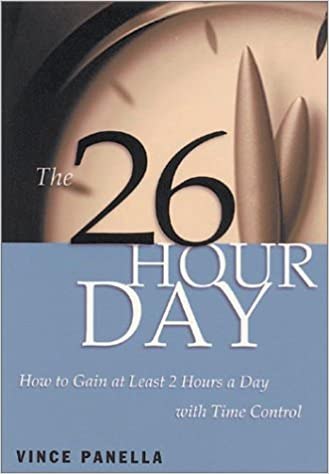
19) The 26-Hour Day by Vince Panella
This book has worksheets if you’re someone who likes to go step-by-step. The main point I remember from this book is the compounding effect of continual improvement: a 1/2 percent improvement applied 5 days a week will improve you 300 percent in one year, 1,000 percent in two years, 3,000 percent in three years, 10,000 percent in four years. There you have it. You might not need to read the book now!
BOOKS ABOUT BUSINESS
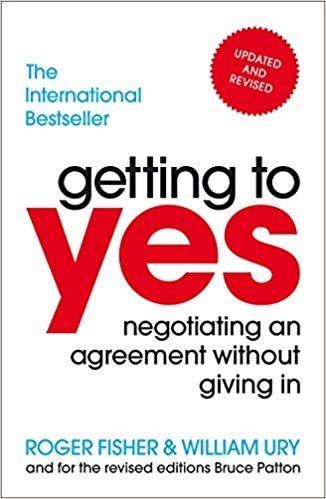
20) Getting To Yes: Negotiating Agreement Without Giving In by Roger Fisher and William Ury
An all-time classic book on negotiation that made me look at conflict resolution and negotiation in a completely different way and has helped me resolve many a sticky situation.
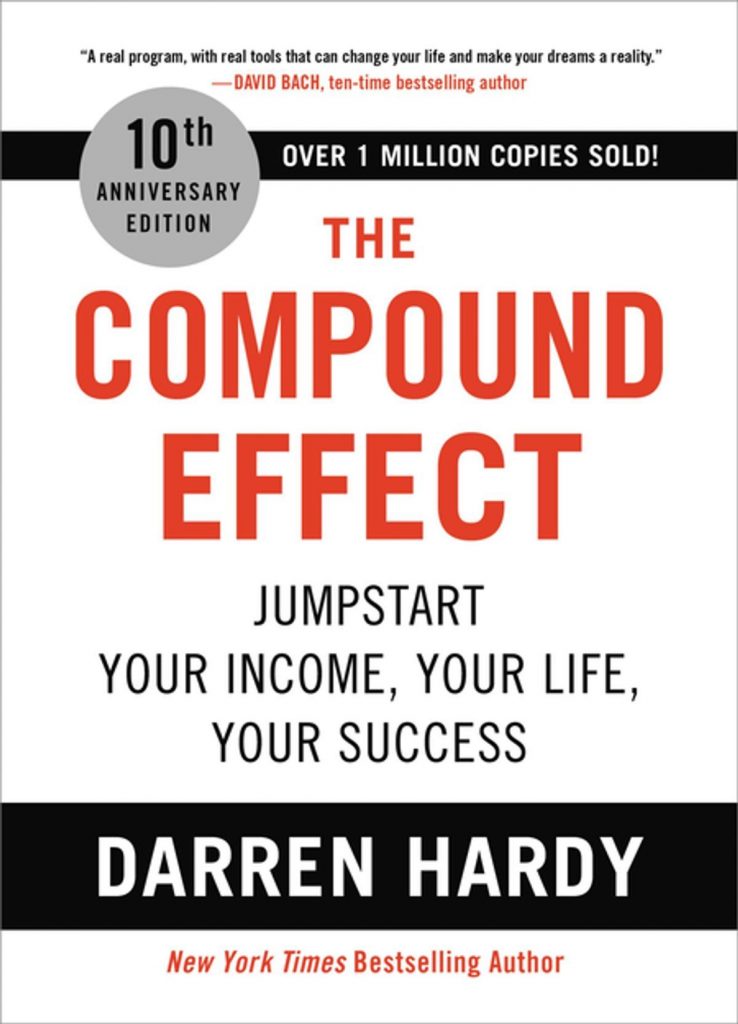
21) The Compound Effect: Multiplying Your Success One Simple Step At A Time by Darren Hardy
Most of us understand the power of the compound effect when it comes to investing, but have you applied it to other areas of your life? This book will help you do that.
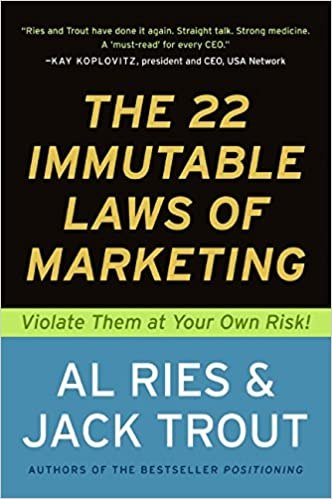
22) The 22 Immutable Laws Of Marketing by Al Ries and Jack Trout
Almost the original bible of marketing and better than the updated ‘sequel’, The 22 Immutable Laws of Branding is a very easy read and includes timeless principles, even though some of the examples are dated.
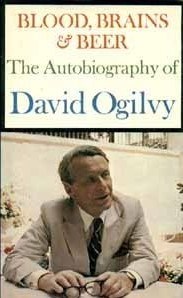
23) Blood, Brains & Beer: The Autobiography of David Ogilvy by David Ogilvy
David Ogilvy, the father of advertising and the original “Madman”, is such an old-school wit that he could talk about anything and make it sound interesting.
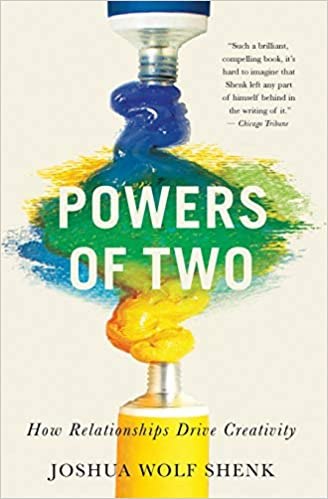
24) The Power of Twos: How Relationships Drive Creativity by Joshua Wolf Shenk
This book challenges the myth of the lone genius and takes a deeper look at the power of successful partnerships through examples such as Marie and Pierre Currie, John Lennon and Paul McCartney, Vincent Van Gogh and his brother Theo, and Orville and Wilbur Wright.
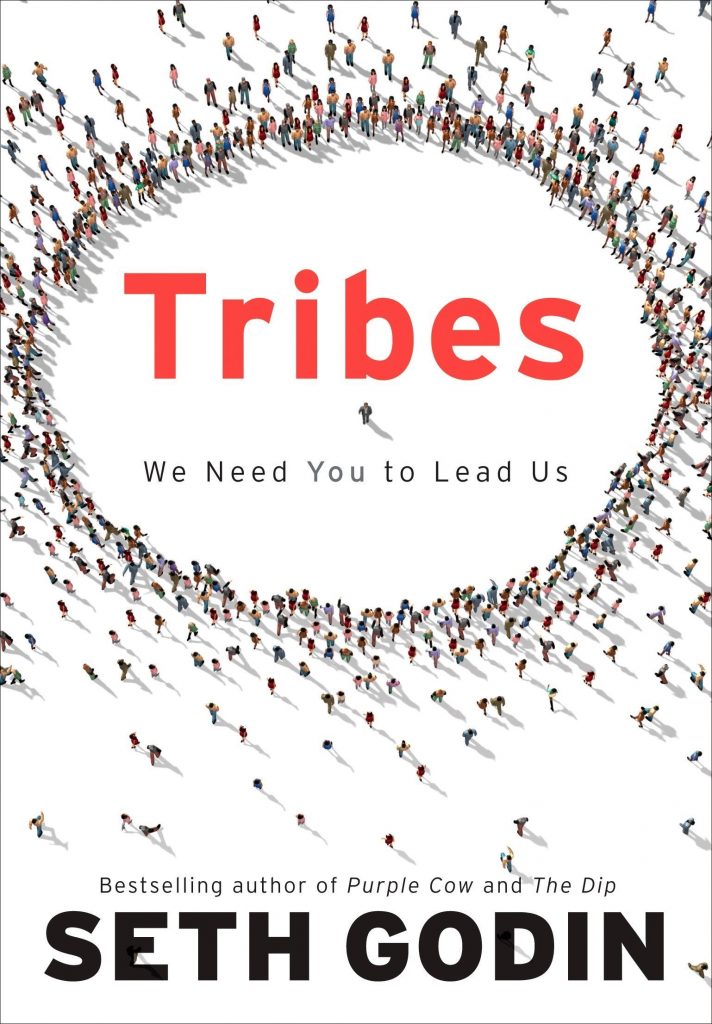
25) A bunch of books by Seth Godin (in order of recommendation): Tribes, Linchpin, Purple Cow, The Dip
Seth Godin has a brilliant way of expressing (mostly marketing) ideas and offers novel and practical ways to implement them. Note: his latest book is called This Is Marketing and I just can’t get into it at all.
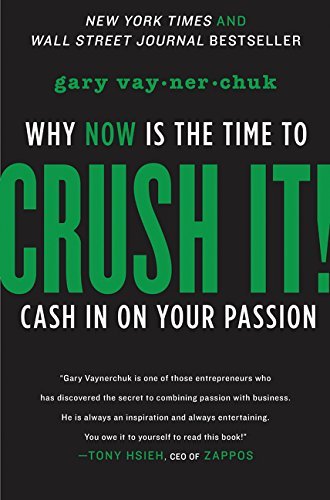
26) Crush It!: Why NOW Is the Time to Cash In on Your Passion by Gary Vaynerchuk
A book that shows you how to harness the free power of the internet to monetize your passion. Some of the info is outdated but the author’s story is inspiring and the key principles still apply. Head straight to the 21-step to-do list at the back of the book if you’re short of time.
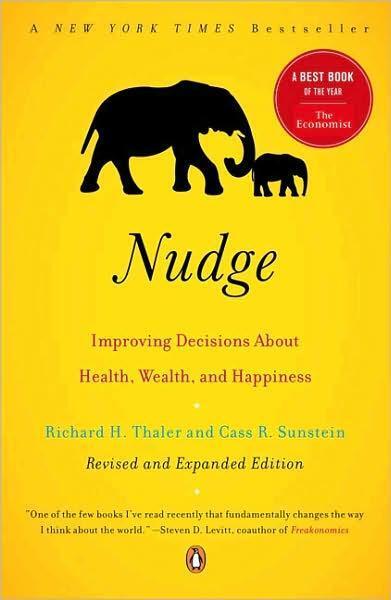
27) Nudge: Improving Decisions About Health, Wealth, and Happiness by Richard H. Thaler and Cass R. Sunstein
One of the best-known books about behavioral economics.
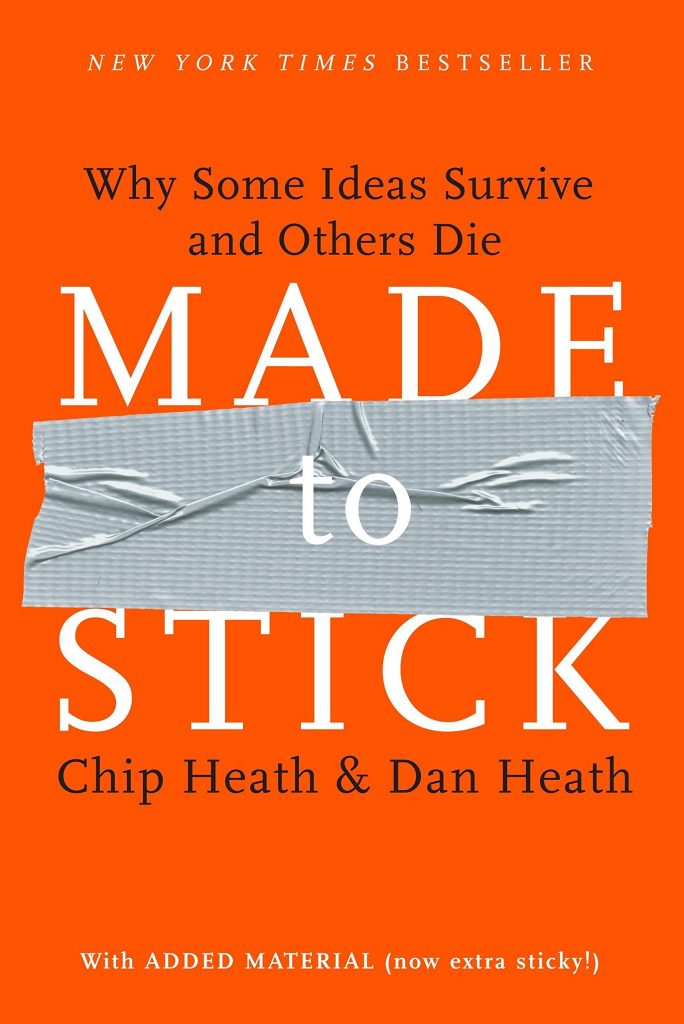
28) Several books by Chip and Dan Heath: Made To Stick, Switch, The Power Of Moments
The Heath brothers always uncover important modern business insights with lots of entertaining examples.
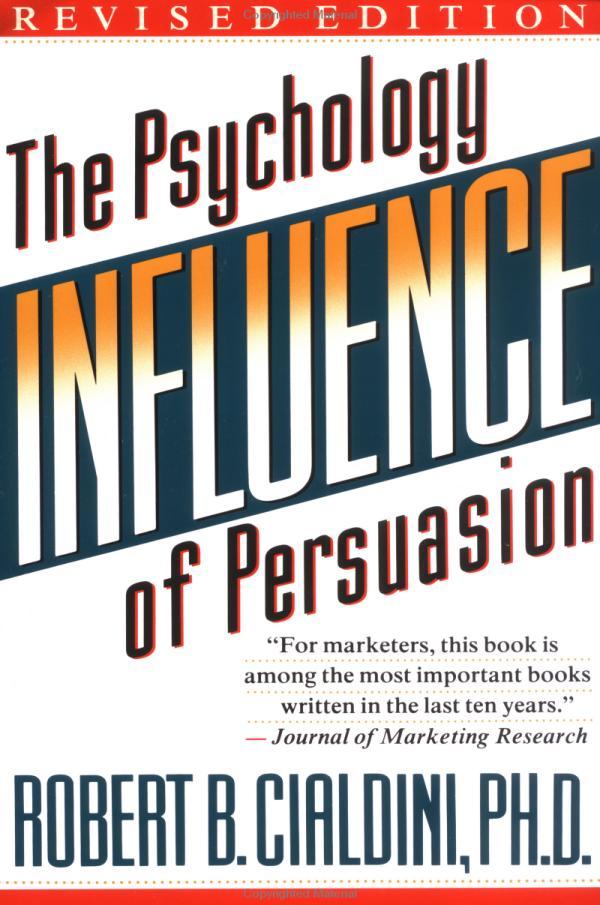
29) Books by Robert B. Cialdini: Influence: The Psychology of Persuasion, Pre-Suasion: A Revolutionary Way to Influence and Persuade
I felt a tiny bit evil after reading these two books.
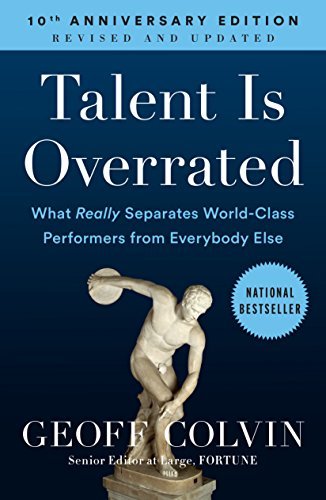
30) Talent is Overrated by Geoff Colvin, and The Talent Code and The Little Book Of Talent by Daniel Coyle
I read these all around the same time and I can’t quite remember which one offers which advice! My key takeaways were that you can “work on your greatness” and that talent is not simply about DNA or something you’re born/not born with.
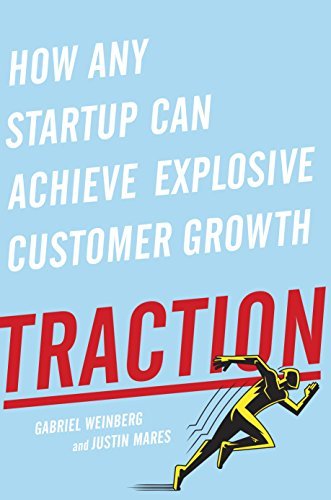
31) Traction: How Any Startup Can Achieve Explosive Customer Growth by Gabriel Weinberg and Justin Mares
I like the way this book breaks down the specific marketing channels so you can work out which ones will work for your business.
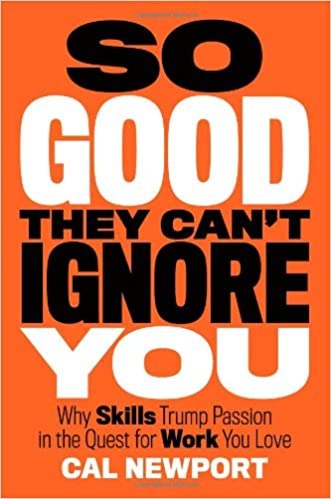
32) So Good They Can’t Ignore You by Cal Newport
If you can build up your skills and value, you’ll increase your odds of getting offered interesting work. Thus, don’t think about what the world can offer you (i.e. don’t follow your passion), but think about what valuable thing you can offer the world.
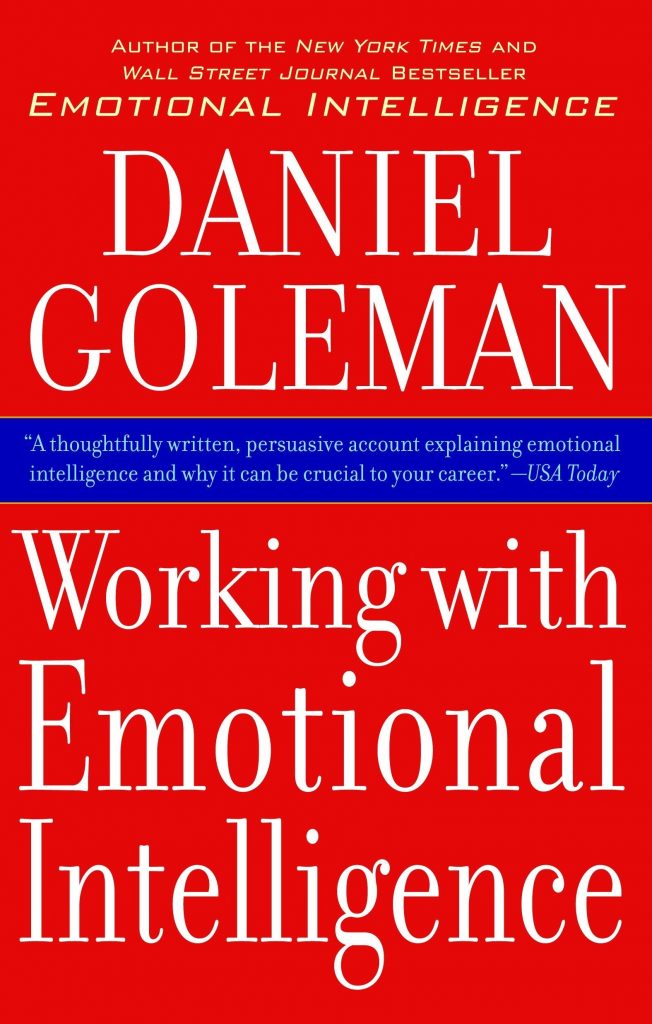
33) Emotional Intelligence and Working With Emotional Intelligence by Daniel Goleman
I attended a course on emotional intelligence and these books were included as required reading. They helped me become a much better manager.
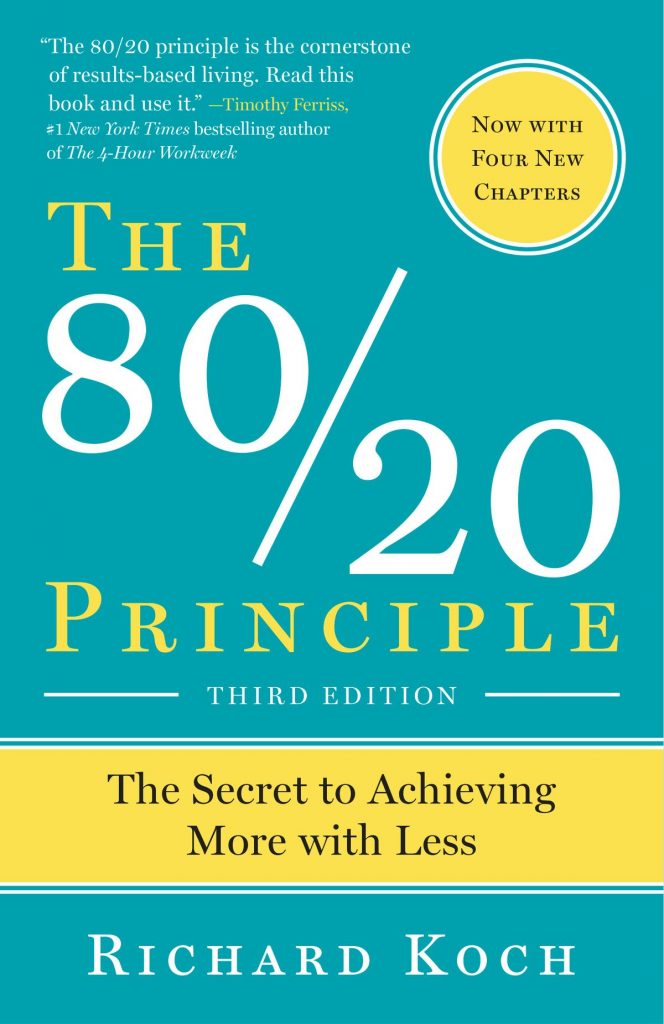
34) The 80/20 Principle by Richard Koch
If you already have a good understanding of the 80/20 principle (also known as the Pareto Principle) and how to apply it, you probably don’t need to read this book.
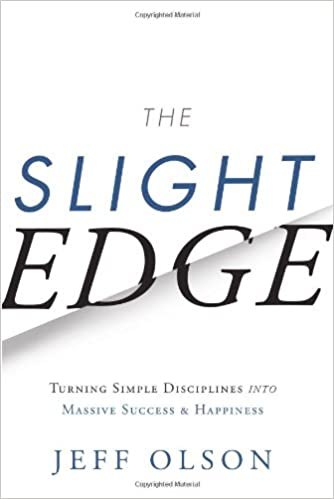
35) The Slight Edge: Turning Simple Disciplines into Massive Success and Happiness by Jeff Olson
As with many other “shelf-help” books, you only need to read the first few chapters of this book to get the key point. The rest is padding. It’s a useful message though – it’s the small and steady things you do every day that add up over time. You might not be amazing at all things, but you can think about the “slight edge” you have.
BOOKS ABOUT CAREER AND LIFE
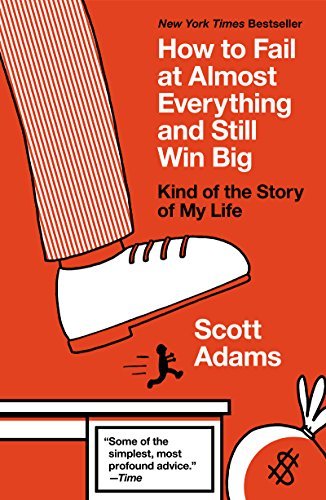
36) How to Fail at Almost Everything and Still Win Big: Kind of the Story of My Life by Scott Adams
Funny and unique career tips.
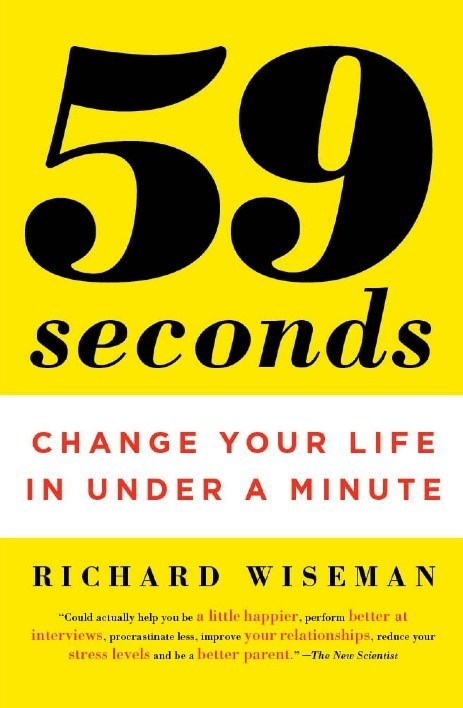
37) 59 Seconds: Change Your Life In Under A Minute by Richard Wiseman
Scientifically proven life hacks from someone who’s frustrated with the whole self-help industry and their snake-oil remedies.
[Recording] How to Make an Impression on Clients, Future Employers And More!
“Be weird – a useful weird.” This was one of five unconventional tips shared by Angela Cheung, Managing Director of APV; and Treena Nairne, Director of Dashpoint Management; at July 15’s webinar on how to make an impression on prospective clients or employers. Other strategies included personalizing our communications, finding the “third door”, sharing our dream, and actively networking, which together create value for ourselves and boost “call-back-ability”. “And finally, when you do walk through that door to your dream job, just remember to hold open the door for others to follow,” said Angela as she encouraged us to put these ideas into action while remembering to pay it forward.”
Session Notes
1:58-2:40 Introduction of speakers
2:41-5:39 Icebreaker: Would you rather?
5:40-9:20 Workshop preview
9:21-17:13 Tip 1: Be weird – a useful weird
17:14-22:15 Tip 2: Take it personally
22:16-29:05 Tip 3: Find the third door
29:06-32:47 Tip 4: Give them a piece of your dream
32:48-37:09 Tip 5: Let your network work for you
37:10-39:41 Once upon a time in India…
39:42-41:14 Final words from Angela and Treena
BX friend, Chan Wai, sums up Angela and Treena’s five unconventional – but proven! – strategies in his infographic below:
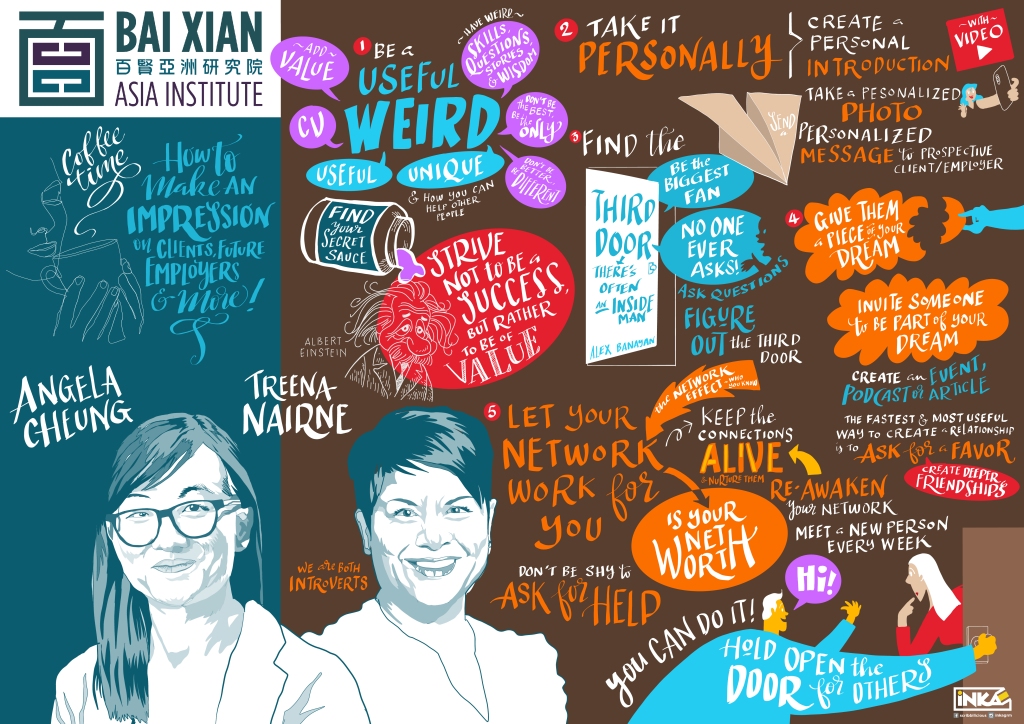
Book Recommendations from Angela and Treena

The Third Door by Alex Banayan
“Our advice for you is to believe that the third door exists. There is always another way – whether it is seeking that new connection, finding the opportunity to engage with somebody by being their biggest fan, or just asking a question – figure out what that avenue may be for you!” said Treena.
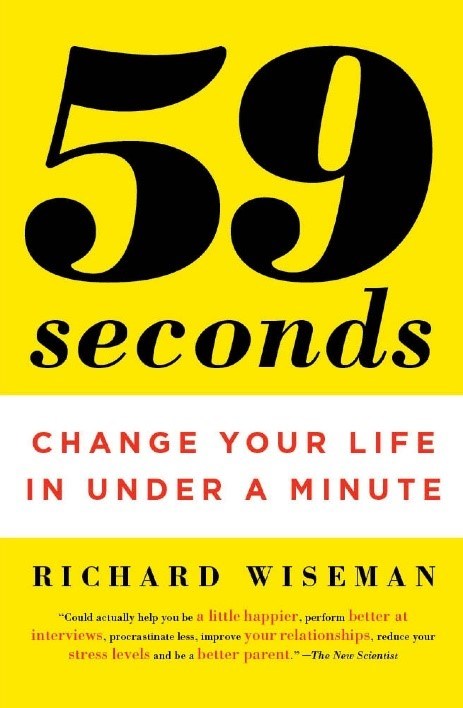
59 Seconds: Change Your Life In Under A Minute by Richard Wiseman
“The fastest and most useful way to create a relationship is to ask for a favor,” said Angela, quoting from Richard Wiseman’s 59 Seconds: Change Your Life In Under A Minute. “The author believes that asking for a favor (rather than the other way around) allows us to forge deeper relationships because people like to feel like they have been helpful and have added value.”
[Blog] Coffee Time and Meditation with Mr. Jason Lai
Wellness in Tough Times
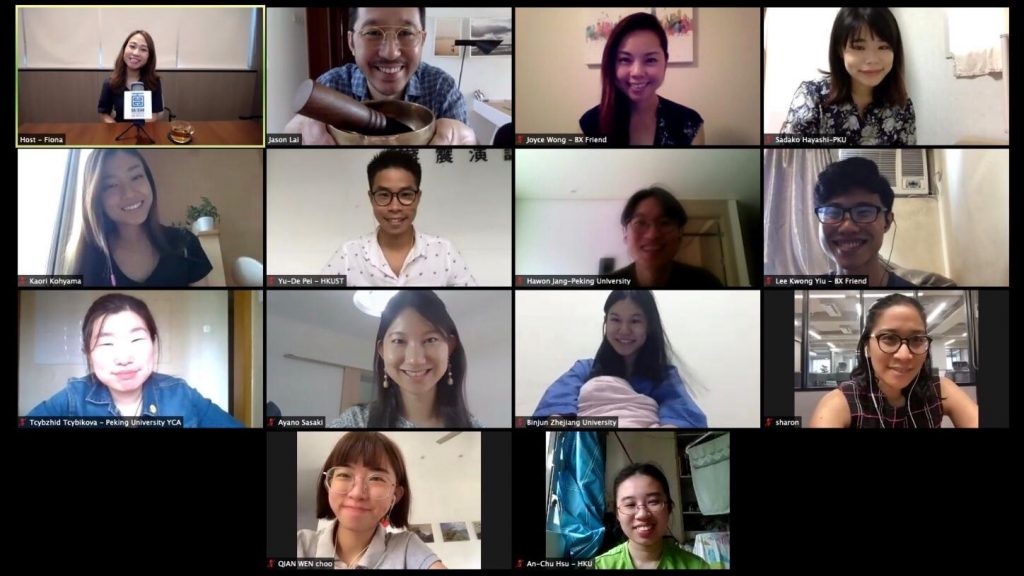
“Meditation is a gym for the mind. Over time, you will notice the ability to handle stressful situations in a much more positive and grounded way,” said conductor and life coach, Mr. Jason Lai, who led our virtual “Coffee Time” and meditation session on July 3. Explaining why he feels hopeful during these uncertain times, Jason credited his outlook to his belief that “the nature of life is change.” Instead of stressing about things we can’t control, he feels it is important to find some space to have quiet time, to not to be active, and to not dwell in the realm of worry. “We need a lot of patience at this time – both for ourselves and others,” he said, pointing to meditation as a helpful tool. “We often think that meditation is for ourselves. But I challenge you to think of it as being not only compassionate to yourself, but also as a way to be compassionate to others, because when you have that compassion for yourself, then you’ll show that to others. That will change the world in which you live in.”
Below are some of Jason’s top tips for achieving wellness and mindfulness in tough times, which were shared at the session and beautifully distilled by graphic recorder and BX friend Chan Wai.
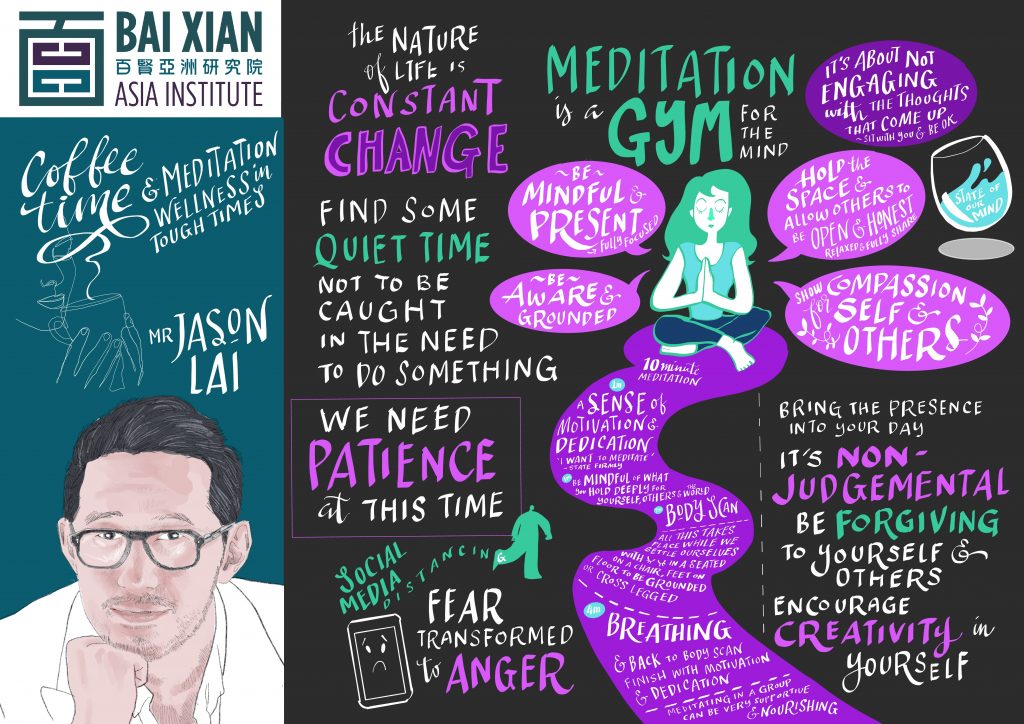
More Tips from Jason
“We are so good at judging ourselves, but meditation is non-judgmental. It’s about not giving yourself a hard time on something. It gives us a sense of space and clarity on life.”
If you are new to meditation or are interested to explore further, check out these additional resources recommended by Jason:
1) Guided Meditations
“Meditating in a group is very supportive and nourishing.”
Get started on your meditation practice with Jason’s 10-minute guided group meditation (recorded during his “Coffee Time” session), which is divided into four parts: (1) motivation and dedication; (2) being mindful of what you hold deeply for yourself, others, and the world; (3) body scan; and (4) breathing.
Jason also has a series of short guided meditation videos available online that are designed to help reduce stress and maintain mental and emotional wellness. Set to handpicked classical masterpieces performed by the Singapore Symphony Orchestra, the videos transport listeners on a calming musical journey towards a place of serenity and peace.
2) Book Recommendation
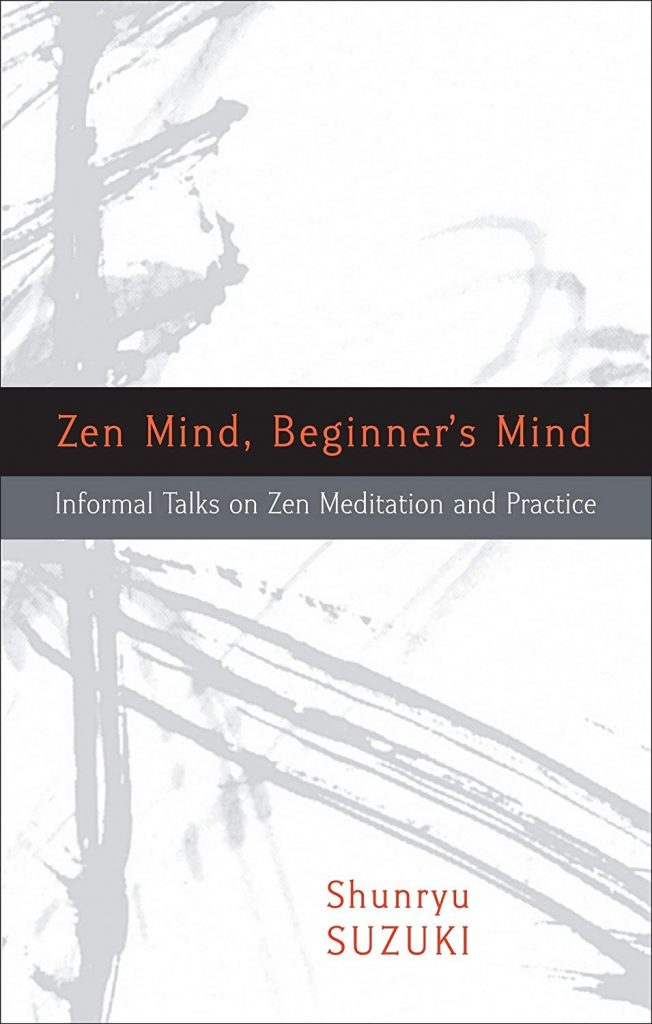
| “Zen Mind, Beginner’s Mind by Shunryu Suzuki is a great read and attempts to explain that the only way to truly meditate is to let go of everything you think you know and approach it with a beginner’s mind.” |
3) App Recommendation
“I use Insight Timer on my phone to time my meditations and there are a lot of guided ones there as well.”
And finally, as you prepare to begin your meditation journey, Jason leaves us with these encouraging words: “Meditation is not like a block of time that you just finish and shut aside. Try to bring everything, the sense you have during meditation, into your day.”
Be present, be you, be well!
[Recording] Webinar: “How Has the Pandemic Affected the Landscape of Asia?”
Our first webinar, “How Has the Pandemic Affected the Landscape of Asia?”, was held on July 10 moderated by Ms. Jean Sung, Board and Executive Committee Member of BXAI, and featuring panelists Prof. Rumi Aoyama from Waseda University; Prof. Koo Mingyo from Seoul National University; and Ms. Bing Song, Vice President of the Berggruen Institute.
Exploring Asia-specific issues in the COVID-19 era, our panelists identified the many challenges that have surfaced but also the wealth of opportunities that have cropped up such as virtual globalization, interregional collaboration, and redefining the Asian identity. Ms. Sung wrapped up the session with a thought-provoking message, “Attitude is not aptitude and we determine our own altitude. If you think about people first, then the planet, then profitability for the planet and people, you will be able to build bridges across Asia and contribute to a harmonious world.”
Session Notes
1:29-3:02 Introduction of moderator and panelists
How has the pandemic affected the landscape of Asia?
3:03-9:25 Sharing by Prof. Rumi Aoyama
9:26-19:59 Sharing by Prof. Koo Mingyo
20:00-34:14 Sharing by Ms. Bing Song
34:15-37:58 Why do you think the infection numbers in Asia have been contained?
37:59-40:25 How do you see the Asian culture of obedience in response to the pandemic?
40:26-43:08 How do you see the advancement of IT, AI or medical technology?
43:09-49:45 Are there new opportunities for the young generation?
49:46-1:01:07 Q&A
1:01:08-1:02:41 Wrap-up message from Ms. Jean Sung
How has the pandemic affected the landscape of Asia? From challenges to Asian values and identity to new opportunities for the younger generation, check out the highlights of our webinar and major points shared by our panelists from China, Korea and Japan. Thank you again to BX friend Chan Wai for artistically summarizing another Virtual Community Event for us!

[Recording] BX Career Talk: Practical Tips for Career Development
Our virtual BX career talk was held on June 26 featuring BX Alumni panelists: Jimmy Gao, Mu Yutong, and Rokuro Watanabe, who shared about job hunting, interviewing, and networking in a world impacted by COVID-19. Moderated by BX Alumna, Yerin Chu, the session also addressed different workplace cultures, working abroad, and transitioning from school to work. On how to stand out from other candidates, especially during these unusual times, Yutong advised scholars and alumni to show prospective employers that they are able to work proactively and effectively, even from home. Looking back on his career path, Jimmy spoke about how his company’s culture of training allowed him to hone his skills and establish a firm foundation. “For the new graduates, don’t care too much about title or salary. Instead, see if the company provides its employees with opportunities to grow and learn,” he said. As for Rokuro, networking is crucial. “In terms of job hunting, networking and connections are very important and the Bai Xian community is an extremely valuable resource.”
BXAI’s Virtual Community Events Draw to a Close
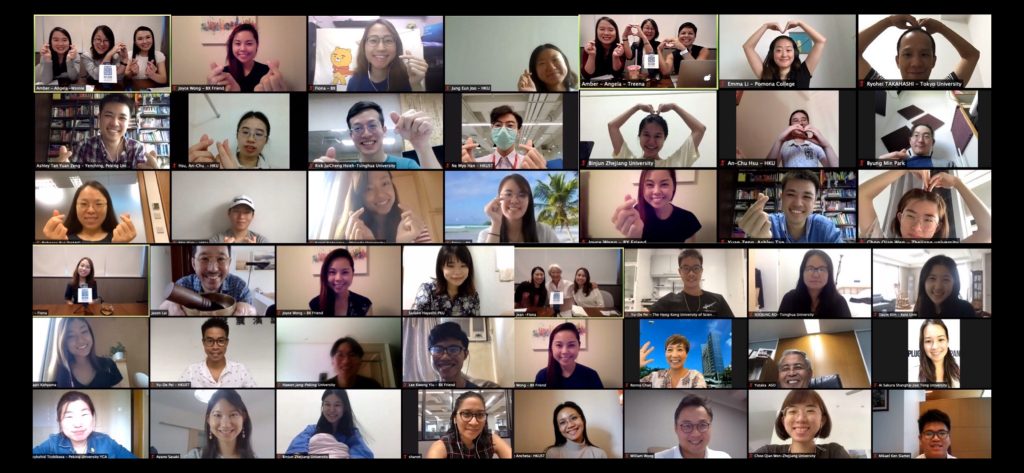
The Virtual Community Events series kicked off with “Coffee Time with the BX Community” on June 17 led by our CEO, Ms. Ronna Chao, and President, Prof. Katsuichi Uchida. They discussed “The New Normal”, sharing candidly about their personal experiences during the pandemic and thoughts about the post-COVID world. Four more “Coffee Time” sessions followed over the subsequent six weeks: Ms. Jean Sung spoke about personal branding, Mr. Jason Lai led a “Wellness in Tough Times” session which included a 10-minute guided group meditation, Ms. Mary Anne Choo shared about post-pandemic challenges and opportunities in the financial sector, and Ms. Angela Cheung divulged “the best career advice no one tells you”.
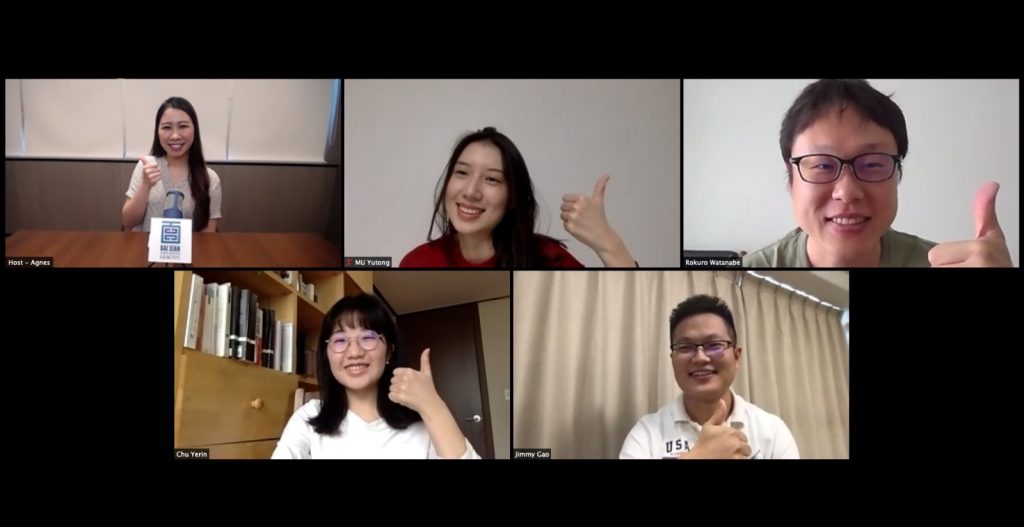
On June 26, four Bai Xian Alumni hosted a career talk, addressing everything from job hunting and interviewing during a pandemic to different workplace cultures, working abroad, and transitioning from school to work. It was a particularly helpful session for current scholars, who also had an opportunity to put forth specific questions to the graduates and hear viewpoints from different industries.
Three webinars were held in July and August, each of which was led by guest speakers who are influential leaders and experts in their respective fields. The first webinar, titled “How has the pandemic affected the landscape of Asia?”, was moderated by BXAI Board and Executive Committee Member, Ms. Jean Sung, and featured panelists Prof. Rumi Aoyama from Waseda University; Prof. Koo Mingyo from Seoul National University; and Ms. Bing Song, Vice President of the Berggruen Institute. Exploring Asia-specific issues in the COVID-19 era, our speakers identified not only the many challenges that have surfaced but also the wealth of opportunities that have cropped up such as virtual globalization, interregional collaboration, and redefining the Asian identity. On July 31, we had the pleasure of having global sustainability expert, Ms. Janice Lao, lead a discussion on the corrosive problem of economic inequality, and what can be done on a personal level for the betterment of society. The final webinar, “What does crisis management look like for different businesses?”, was held on August 6 and saw our guests Ms. Helen Chen, BXAI Communication and Development Committee member; Mr. Chan Wai, graphic recorder; Ms. Laura Cozijnsen, founder of Lighthouse Consultant Limited; and Ms. Aurea Yung, Head of Operations at Foodlink Foundation, share about challenges brought on by the global crisis. They spoke with a lot of insight about how they had to rethink and modify their business practices, look for new opportunities, and proactively prepare for future challenges in the post-COVID world.
Last but not least, scholars and alumni enjoyed the opportunity to participate in two engaging online workshops this summer: a presentation workshop titled “How to make an impression on clients, employers, and more!”, and an adaptive leadership workshop. The former was led by Ms. Angela Cheung, Managing Director of APV; and Ms. Treena Nairne, Director of Dashpoint Management, who focused on strategies that help us create value for ourselves and boost “call-back-ability” when job searching or finding new clients. At the “Become an adaptive leader: starting from today!” workshop, TomorrowToday consultants Mr. Keith Coats and Ms. Tamryn Batcheller-Adams highlighted the importance of adaptability in today’s fast-moving, ever-evolving world. They also spoke about how we can develop this crucial skill and build adaptive intelligence for ourselves.
It has indeed been a fruitful and rewarding summer for the Bai Xian community. Even in the midst of such challenging and uncertain times, we have been very encouraged to see so many of our scholars, alumni, and friends embrace this “new normal” by staying connected with one another and continuing to learn and grow. We look forward to meeting with you all again, whether virtually or in person, very soon. Stay safe and be well!
Special Scholarship Disbursement Arrangements for the 2020-21 Academic Year
In light of the COVID-19 pandemic, BXAI will allow for special scholarship disbursement arrangements for the 2020-21 academic year. If online learning is offered by the Partner/Receiving University, scholarship disbursements will continue to be provided as per our usual disbursement policy as well as each school’s respective disbursement policy.
For further enquiries regarding scholarship disbursement for the 2020-21 academic year, please contact [email protected].
*Updated as of August 24, 2020
Keith COATS
Keith Coats, cofounder of management consulting firm, TomorrowToday Global, shares about why he feels like he has “never worked a day in his life,” even though he has had two vocations. He also talks about why he believes the BXAI Summer Program is a valuable investment in life for scholars and aspiring leaders.
